
We obviously need to un-reform our election reforms
We have run national elections in America for more than 228 years. We are now living in an era of technology in which data and communication travel in high volumes at the speed of light. Considering those two facts, one has to wonder why the upcoming election will give us the slowest results and increased national uncertainty of any election since the invention of the telegraph. Some are already predicting that this will be the most litigated election in American history.
It was not too long ago when the outcome of a presidential election was announced within minutes of the closing of the polls in California. Occasionally, in a particularly close election in which there were legal challenges – it might take longer to certify the results. Remember the Bush/Gore contest in 2000?
So, why does 2020 promise to be a chaotic mess? It is quite simple. We have undermined the efficacy of the election process with several controversy-producing so-called reforms – changes in the laws of several states that insure political and/or legal battles.
The most efficient process in terms of getting quick and RELATIVELY honest results was having voters go to the polls on a specific day, present proper identification and cast their ballots in person – with only a very small number of absentee ballots from those in the military, on out-of-town business or incapacitated.
I say “relatively” honest because election abuses and frauds did occur regularly. The abuse of absentee ballots existed – especially with the so-called nursing home and cemetery votes. But the number of fraudulent votes was only sufficient to corruptly influence the outcomes in local or statewide races, at worse. Although most historians agree that likely vote fraud in Texas and Illinois flipped those states – and the presidency — to Senator Jack Kennedy in 1960. The losing candidate, former Vice President Richard Nixon chose not to contest those outcomes – as he put it – for the good of the nation.
Having actively worked against vote fraud through several different civic organizations – the City Club of Chicago, Project LEAP (Legal Elections in All Precincts), the Better Government Association and the League of Women Voters – I can assure readers that vote fraud has and does exist. It is found mostly in urban centers governed by one-party political machines. Why else would those organizations – and many others – devote resources to fighting something that modern left-wingers now say does not exist – and never did?
Under the banner of “expanding the franchise,” a coalition of do-gooders and ill-willed partisan hacks – mostly from the left – have imposed a number of reforms that have not only expanded the potential and reality of vote fraud, but have made it even more difficult to prosecute. And it always has been one of the more difficult crimes to identify the perpetrators — and prosecutors and courts controlled by the one-party political machines have been more than a little reluctant to bring the perpetrators to justice. The lack of prosecution is the basis of the current claims that vote fraud is nonexistent.
If you look only at the arrests for failing to use the car turn signal to determine the actual number of violators, you get a completely distorted picture of reality – as anyone who drives could tell you. It is much the same with vote fraud.
I believe in an axiom that if you create more potential for vote fraud, you will get more of it. So, how have these reforms exposed the election process to more vote fraud?
Early Voting
This is a bad idea in many ways. And the earlier the voting starts, the bigger the problem. Early ballots need to be stored for weeks before the election in locations that are generally controlled by partisan public officials. There is any number of ways that crooked officials can tamper with the ballots. Ballots cast on Election Day are generally supervised – but not always – by stakeholders representing the various political parties. That is not true of stored early ballots – especially where one party controls everything. Because I want my vote to count, I do not vote early.
Vote by mail (absentee style)
The general pressure to expand voting by mail has received a shot in the arm by the Covid-19 Pandemic. Despite the growing popularity of vote-by-mail, it is increasing the possibility that your vote may not get counted. First, there is the weakness of the system itself. Even before all the ginned-up controversy over the current role of the U.S. Post Office, we knew that approximately three percent of all mail gets lost – and even more gets delayed. The closer to Election Day that you drop your ballot in the mailbox, the greater the likelihood is that it could get lost or arrive after the legal deadline – which varies from state-to-state. That is why I highly recommend voting in person on election day – with on-site early voting as a last resort.
One of the weaknesses in voting by mail is that it circumvents the legal restrictions against political operatives entering the voting booth to influence or intimidate a voter. We have seen that preventative measure abused in nursing homes and among the elderly because the marking of the ballot is outside traditional polling supervision by various stakeholders.
Mail OUT balloting
Contrary to the contentions of the news media, there is a HUGE difference between absentee by mail and mail OUT voting. In the first case, individual voters must request a ballot. They expect to receive a ballot to be individually cast – and the numbers are nominal. For sure, there are cases of fraudulently requested ballots, but it is not widespread.
Democrats favor the idea of automatically sending out live ballots to every registered voter – and in some states have inaugurated that practice. In a presidential election year, that means that millions of ballots would be mailed to people who are dead, have moved away or are ineligible to vote – and to more millions to citizens who may have no interest in voting. According to Pew Research, about 20-plus million ballots could go out to the ineligible alone – not counting the disinterested. The number is extraordinarily high because Democrats refuse to take any action to remove the ineligible voter.
So, what happens to all those ballots? And why do Democrats fight to keep ineligible voters on the rolls? The answer is simple. These ghost voters provide the grist for the corrupt voting mill. There are endless ways in which corrupt on-the-ground political operatives can intercept and cast these ballots. That criminal process is enabled by yet another Democratic reform.
Ballot Harvesting
Ballot harvesting is the collection of large numbers of ballots by political operatives – which can then be dumped into the election count on Election Day – or even after Election Day in some states. Ballot harvesting was once considered a primary election abuse and universally outlawed. In more modern times, Democrat legislatures and Democrat governors have legalized the dangerous practice – most notably California. Mailing out ballots to all registered voters dramatically increasing the potential for harvesting – even the harvesting of ballots that are not completed by a legitimate voter.
Provisional (same day registration) balloting
In times of less controversy, a potential voter had to register by a date certain PRIOR to Election Day. That was so that the voter registration sheets could be properly amended in time. The voter was issued a voting registration card that would be shown at the polling place along with a proper identification card.
The new concept is to allow anyone to walk into a polling place – show an identification card that does not indicate eligibility to vote – and cast a provisional ballot. This procedure is so dubious that in many cases the provisional ballots will not be counted if they are not sufficient in number to change the outcome of an election. Consider that. Your vote may not be counted. In other cases, they are automatically counted. Unlike voters on the registration lists, these votes – honest or dishonest – are virtually unchallengeable.
Post-Election Day balloting
For generations, it has been the practice that virtually all ballots must be in the hands of the counters by the close of the polls on Election Day – with some consideration of mailed-in ballots postmarked by midnight of Election Day. Even in the days of the sometimes exceptionally long paper ballot, results were reported within hours — not days or weeks — after the polls closed. This year, a significant percentage of ballots may not arrive or be counted until days after the election. We have already been forewarned not to expect a result in the presidential election for days after Election Day no matter how close or not close the election may be.
Loosening of the rules
Because of the importance of integrity of the election by eliminating – as much as possible – arbitrary judgments, we had established strict rules on how a ballot must be completed and submitted. Break the rule and the ballot could be challenged and rejected. In recent years, a new doctrine was established – often by the courts. It was called “the intent of the voter.” Even if the ballot was improperly completed, there was an argument to be made that election officials could determine “the intent of the voter.” That argument was raised even when there was no intent to determine. If a punch card ballot was punched for two candidates for the same office, can you know the intent? Even if the rest of the ballot was punched for one party, can you assume that the voter meant to vote for the same party?
Post voting corrections
A more recent reform is to allow a voter to “perfect” their ballot AFTER it has been received and challenged. Was the delivery document unsigned? Does the ballot application contain incorrect information – or missing information? Was the mark outside the box – or oval as we have today – or mismarked?
Eliminating (or providing) voter IDs
Nothing should raise suspicion more than the left’s opposition to voter IDs. They argue that this simple requirement – a requirement employed in innumerable daily situations – as voter oppression. That is utter nonsense. In some jurisdictions, illegal immigrants are issued drivers’ licenses – a commonly required identification for voting. These policies greatly enhance the ability of illegitimate voters to cast ballots. Voters should be required to present both a voter registrations card and a photo ID.
Summary
Historically, ballot applications and the ballots themselves, have gone through a rigorous – and often combative — challenge process. Representatives of the political parties and civic-minded citizens get into the process and argue to the point of assault over the admission or rejection of specific ballots. In close elections, the arguments often end up in the courts. We have seen this process in every election. Elections for some offices have remained unsettled for months and even years.
Losing candidates in close elections almost never agree to walk away in the name of a peaceful exchange of power. We saw this when former Vice President Al Gore fought tooth and nail against President George Bush in 2000. We saw refusal to accept a clear election outcome in 2016 when Democrats tried to get electors to break faith, to get Congress to refuse to inaugurate President-elect Trump and a pledge to impeach him even before he was inaugurated.
Thanks to how we have reformed our elections in recent years, we are likely to face even more corruption, controversy, conflict and frustration. We should not be alarmed or see treachery if either candidate uses his constitutional and legal rights to challenge controversial situations. It is just that thanks to the “reforms,” there is likely to be a lot more needless problems – and a much longer time to determine the results.
Thanks to the Electoral College, we will inaugurate a legitimate President of the United States on January 20, 2021, despite any civic trauma we may have to endure in the meantime. If we want to create an unprecedented constitutional crisis and interminable delays in seating a President, just reform the Electoral College out of existence.
Other 2020 races may wind up unsettled for days, weeks or months to come – more than ever thanks to unintended, or intended, consequences of modern elections reforms. Perhaps the next needed reform is to go back to some of the old procedures and practices that proved to produce better outcomes more expediently.
Putting all the aforementioned contemporary election “reforms” together, it is safe to say this year is not going to be your grandfather’s election. And that is more than a pity.
So, there ‘tis.














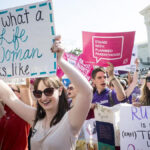
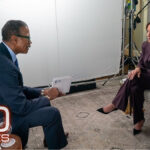
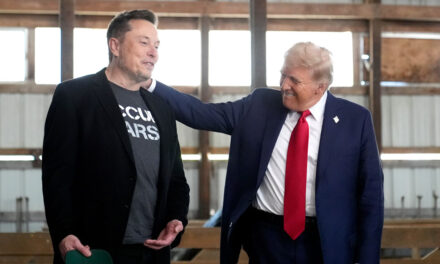
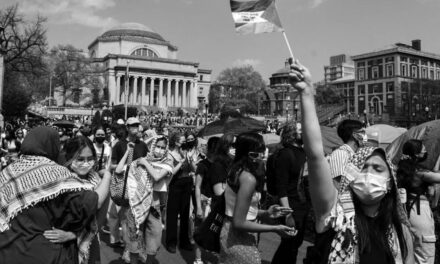



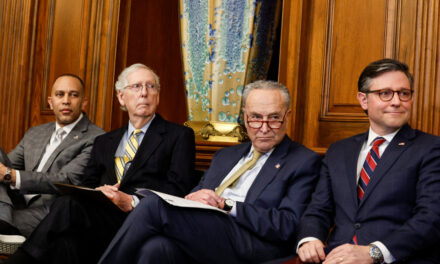




It is obvious that the Democrats use voter fraud tricks as a part of their election strategies. Why else would they oppose photo ID? We need photo ID for almost everything these days –even the pols who oppose it require it for their own town hall or even office meetings. This article shows how far they’ve taken fraudulent devices like sending out zillions of ballots that can be harvested and voted by operatives. Early voting, same-day registration/voting and not cleaning voter rolls and whatever else they think of to win by any means. The headline above means to me –go back to one day voting in person with photo ID.
George, you just said it all. Thanks!
George you nailed it. The commiecrats say that minorities would be hindered by ID. I call BS. I personally know many that work, drive, own businesses ect. Of course illegals probably would have a problem. That’s a large part of the commiecrat’s base.
What good is this to me if I cannot share it
This was a great and as always, factually truthful article. I am just a little sad that you did not call out Mayor Daley of Chicago for his part in the “graveyard voting” system that was prevalent in Chicago for many, many years.
Since most of my experience with vote fraud was in Chicago, I know what you mean. I wanted this commentary to be more generic, but I will probably do a future piece on the specifics of Chicago. No one did vote fraud better than Daley — although it is a byproduct every one-party (Democrat) city.
While this article was far more broad than just the issue of voter ID, I want to add my two cents worth. If obtaining valid ID’s is so difficult for minorities, how is it that stores selling liquor and tobacco stay in business in minority neighborhoods while supermarkets that don’t require ID’s go out of business? Voter ID’s are not a method of voter suppression.